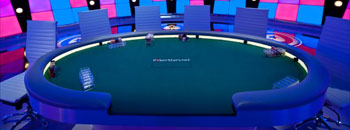Which Poker Books Should You Buy?

Poker Blog
- Why I’ve Accepted the Challenge
- The WSOP POY Oopsie!
- Should We Care if People in the US use a VPN?
- A Common Sense Rewards System
- My Perfect Poker Tournament
- The State of Poker 2019
- My Summer Schedule
- Top 5 Reasons the Vegas Golden Knights are Winning
- The Conclusion of the $100k Super High Roller at PCA
- Day 1 $100k PCA Super High Roller
Poker isn’t like real sports. While there may be plenty of genius football or golf coaches that never reached the elite level as a player, only the elite players themselves can write the best poker books and provide the best training videos. It’s not really possible to be a mediocre, or losing poker player, but also be an elite poker coach.
You could be a great mental coach, preparing someone to be the best player they can be without also being a poker player, but that’s because the coach isn’t required to know what to do with AQ under the gun. It’s irrelevant when it comes to having a mental coach.
A good mental coach is one who helps YOU develop a plan that will help ensure you are the most prepared, and best poker player you can be.
In the last couple years there have been several books that have some crossover appeal between poker and mental preparation. The writers of these books don’t need to be elite poker players. They need to excel only in understanding psychology, what helps players be at their best, and what causes them to fail. They don’t give you the answer to how AQ should be played against a raise, they would simply help in putting your mindset in such a place that you will more consistently make good decisions.
It’s important to distinguish the difference between poker psychology books, and books that teach you how to play the game better. When it comes to learning how to play the game better, it is essential that the author is a successful, winning player over an extended period of time. There are still plenty of books on the market today written by people who simply wouldn’t be winning players today. The information is often totally wrong. A book that was written by a winning player in 2003, doesn’t mean that the information would be effective today. It may contain strategies that worked then, but would be totally outdated now.
I would strongly advise people to question the author of the information you are ingesting, or the guy doing training videos online. If they aren’t successful players, while it still may be worthwhile to soak in some of the information, you should not allow it to cloud your judgment.
Anyone can write a poker book and claim to be an expert. Literally anyone. Anyone can offer training videos online, even those that have a graph in the negative.
When considering a poker book, or deciding on watching an online training video, the absolute most important question you need to ask is:
Who is the author and what are their credentials? Are they successful with the strategies they are teaching today? If they can’t provide any relevant concrete credentials that are applicable to today’s game, you would be foolish to trust in their material.
There are books on the market today that would actually make you a WORSE poker player if you followed their advice. There are plenty of frauds out there because there really isn’t a basis to verify an authors credentials unless they release their personal poker records over an extended period of time.
I’m not looking to call out anyone in particular here, but I have seen poker coaches hired to teach the game who I thought were absolutely terrible players!
The truth is, many of the best poker books will never be written. Its rare for a top player in the highest stakes games to divulge his strategies. He is typically going to make a hell of a lot more money by keeping his strategies to himself versus sharing them with the world. It does happen occasionally, but it’s still quite rare.
So knowing that, it’s even more important to question the authors you are buying and making sure the information you are accepting as correct is coming from a source who can provide some proof of their authority on the subject.


